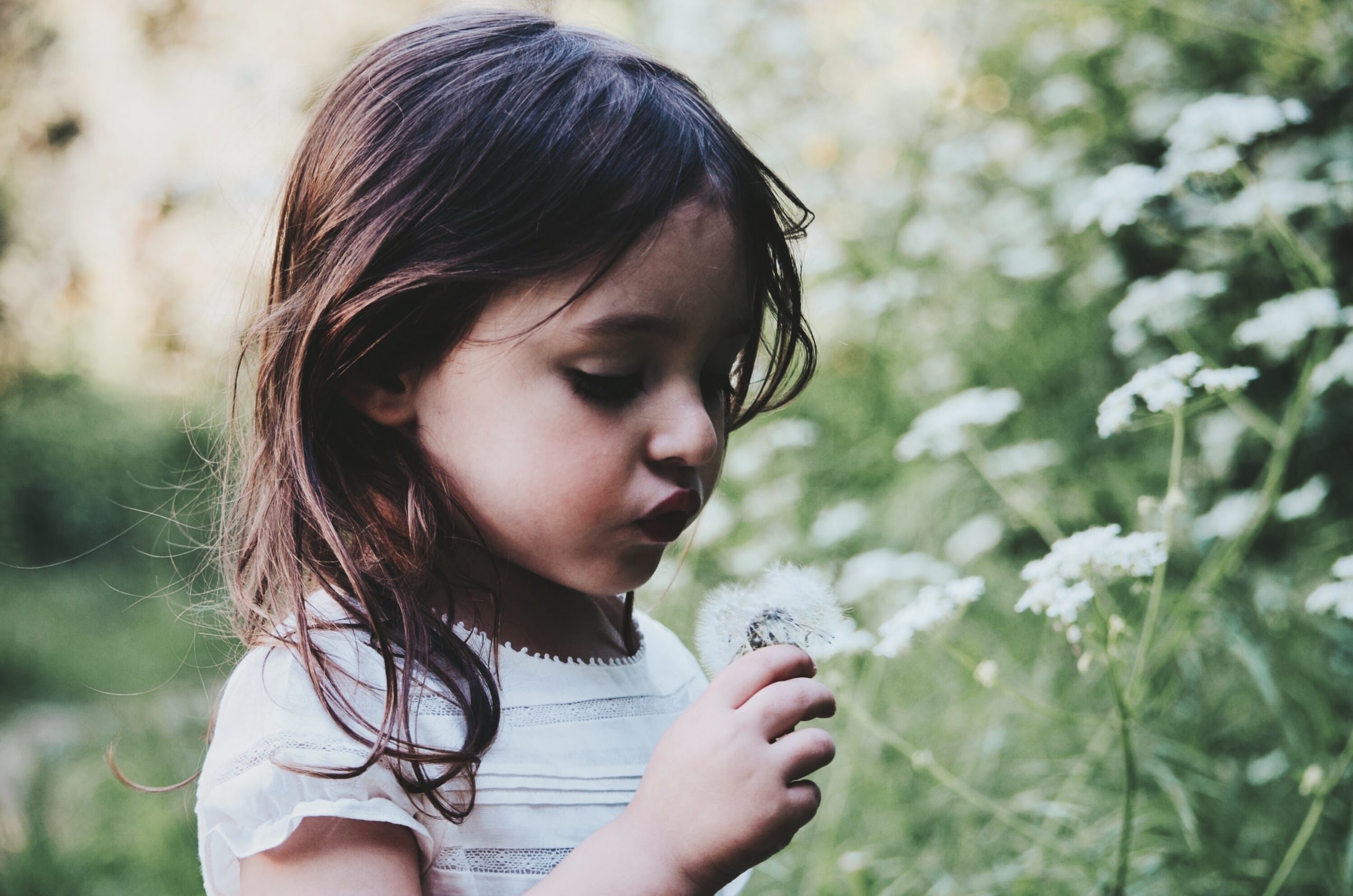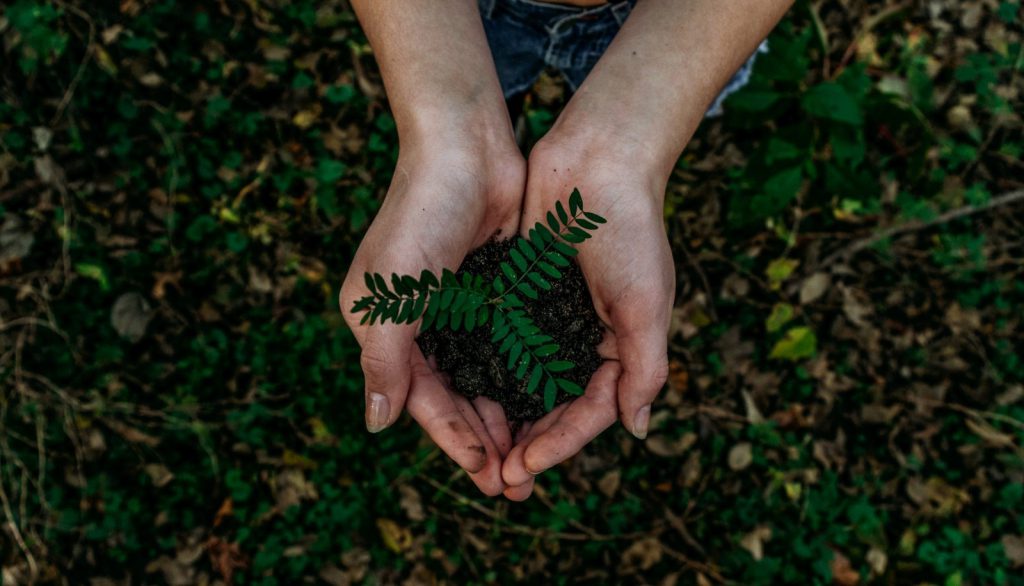17 fun ways to teach children about sustainability
Living more consciously and sustainably is becoming increasingly important as we all become concerned about the environment and want to reduce our own footprint on this planet as much as possible. At Arte Viva, we recommend educating and supporting children to be environmentally conscious from an early age.
Children of all ages are very interested in nature and enjoy exploring the world. Spending most of their time outside allows them to connect with the environment and learn more about sustainability. Incorporating environmental education into the curriculum and learning programs helps children engage with the topic and learn more about it.
Introducing sustainability to children
Talking about sustainability with children is important even though it can be very tricky to find the best time when to start teaching them about it. Nevertheless, it is never too early to teach children about the environment. In the beginning, the children must understand what the term sustainability means. A broad concept describes sustainability as the impact that we have on the earth, and what we leave behind for future generations.
17 fun activities to learn about sustainability
Inside the house
1. Read storybooks about the environment and the earth
Children love to read books and reading storybooks about the earth is a wonderful way to introduce them to difficult topics such as climate change and waste in a child-friendly way. Recommended books are Climate change for babies and Old enough to save the planet.
2. Recycle in the right way
To teach children more about recycling you can together create design and label recycling bins. This is a fun activity that also helps them learn more about trash. Teach them about the varied materials such as glass, metal, paper, or plastic.
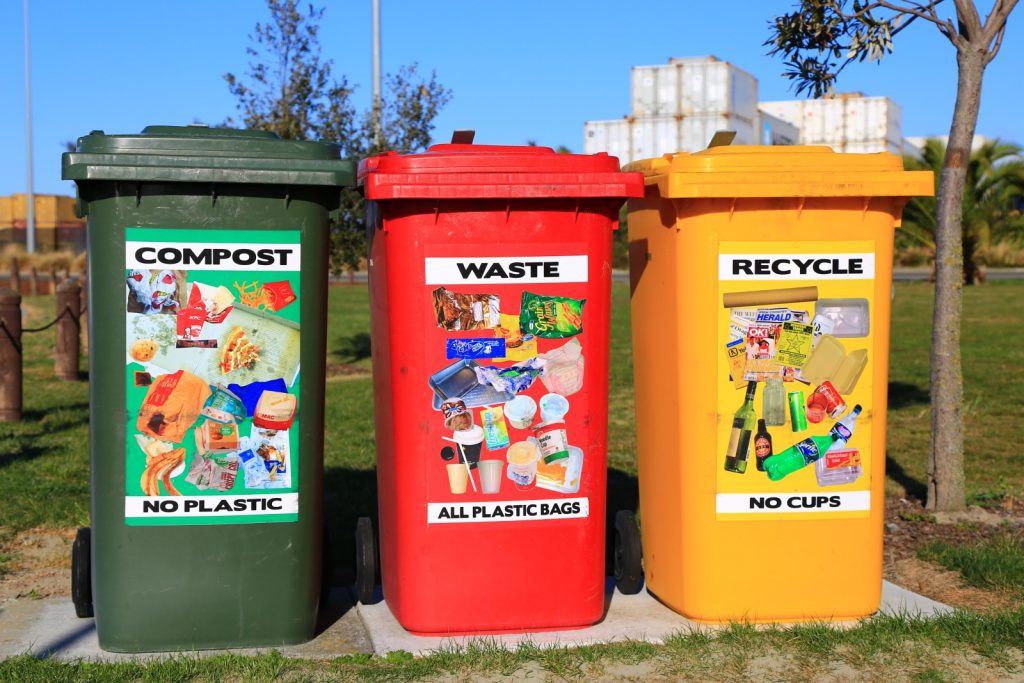
3. Composted garbage
Most of the garbage is compostable. The process of composting allows food to decompose into natural fertile soil.
4. Talk about sustainability at home
Communication is especially important; therefore, it is highly recommended to engage your child in discussions about being sustainable at home. Discuss together what can be done at home to reduce waste, recycle the trash, or compost food. For preschoolers, it can be extremely helpful if you give them a responsible task to take over to form sustainable habits.
5. Homemade laundry products
Instead of buying lots of laundry products that are bad for the environment, you can also make your own laundry products. Here is an inspiration on how to do so.
6. Repurposing and upcycling
Using items that are not used anymore for craft inspiration is a wonderful way to keep your child busy and to support their creativity!
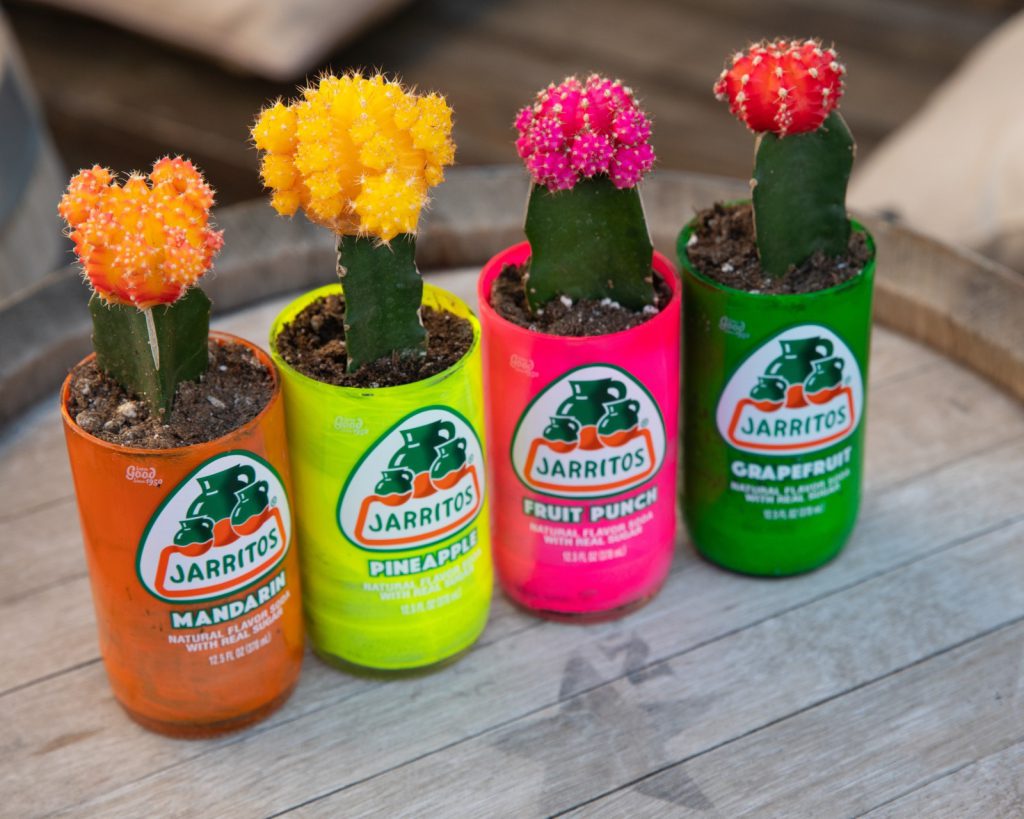
7. Homemade art
Art materials such as paint, stamps, and paintbrushes can be easily made at home without getting bought in a store. Find out how to do so here.
8. Homemade instruments
Be creative and create your own maracas and drums together with your child. When the instruments are done, start your own family band.
9. Make your own seed paper
Use some scrap paper, add seeds, and then plant it. During this process, the children will be able to see the value of recycling and benefit positively to the world.
Outside the house
10. Be outside as much as possible
Being outside is a fun activity to do as a whole family. You can go on bushwalks, visit the beach, go to watch birds, or enjoy nature in the park. While being on a walk, you can have small talk about the environment with your child.
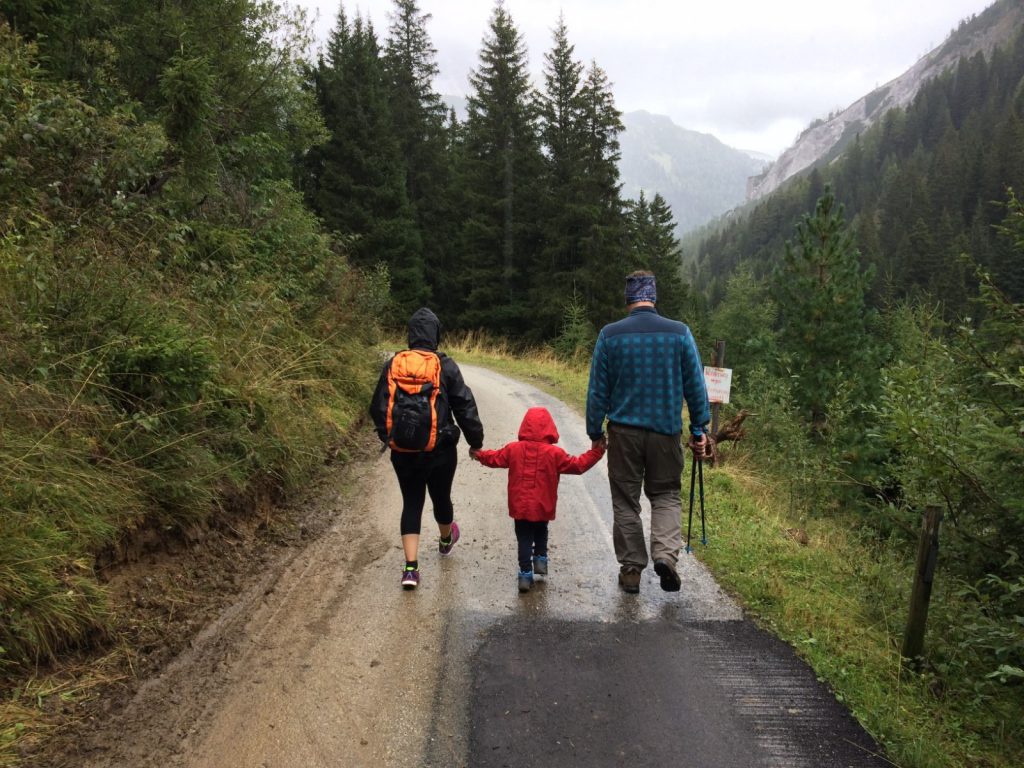
11. Collect rainwater
Collecting rainwater does not only saves your family a lot of money, but it also helps teach kids about sustainability. Children can water plants with rainwater and even use it to play as they do not waste expensive money.
12. Plan and plant a garden with your kids
Starting your own veggie garden is incredibly fun. Start by planting seeds, watering, and caring for the plants. This process helps children to understand the concept of food and where it comes from. This opens many potential conversations around food production and climate change. Also, planting your own vegetables will get your children to try vegetables they did not try before.
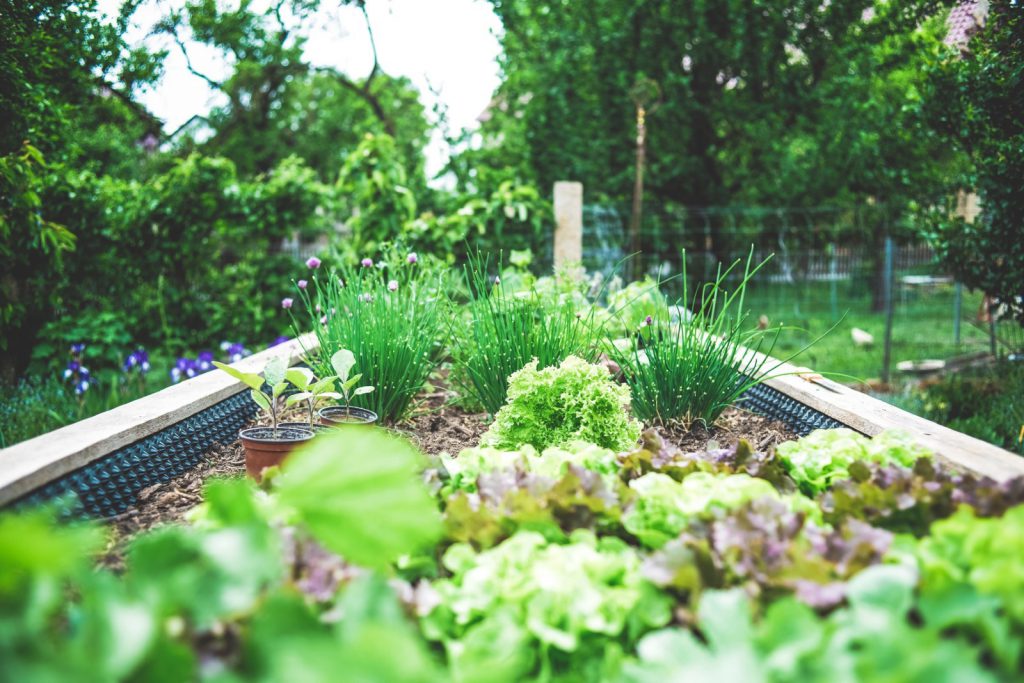
13. Make a compost bottle
Help children to understand the process of compostable material breaking down in the soil with the help of a compost bottle.
14. Plant a tree
It does not matter how large or small the tree is. Planting a tree, whatever the size, is already beneficial for the environment.
15. Create a worm farm
Worms are very efficient at breaking down leftover kitchen scraps and turning them into rich fertilizer. It is also fun for children to watch and observe the worms.
16. Create your own greenhouse
Start your own organic greenhouse in your house.
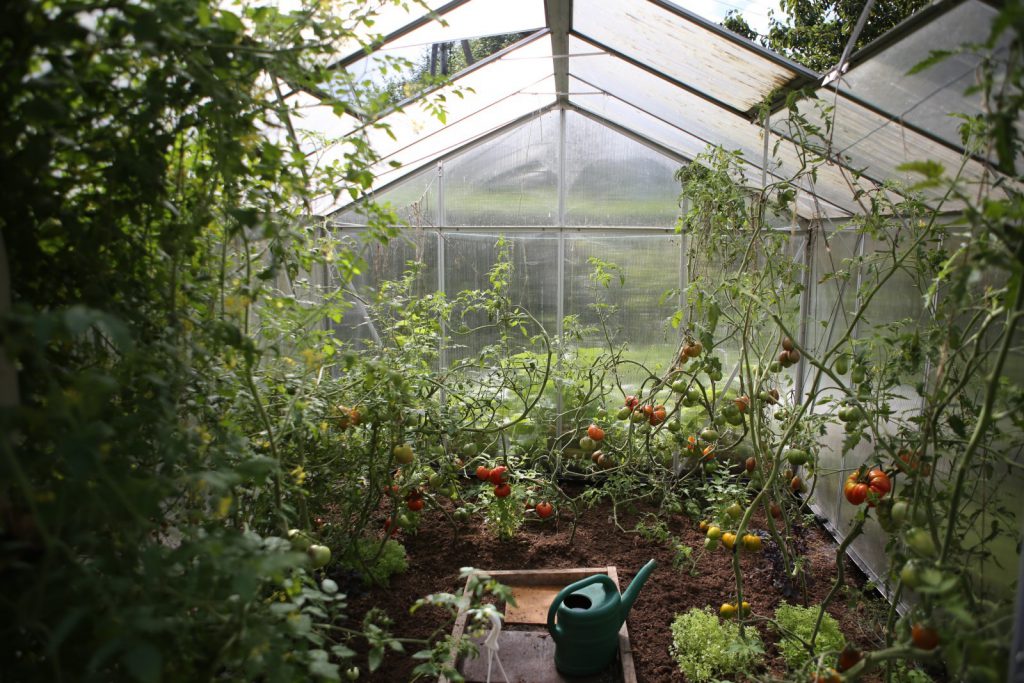
17. Clean up local parks or playgrounds with your kids
Create a fun family clean-up game. Challenge your child and see how fast you can clean up a specific area. This is a fun way to make your neighborhood more beautiful while teaching your child about the use of trash.
Age-appropriate guide
As a guided overview we have created an age-appropriate guide to teach your children about sustainability. Download the guide here.
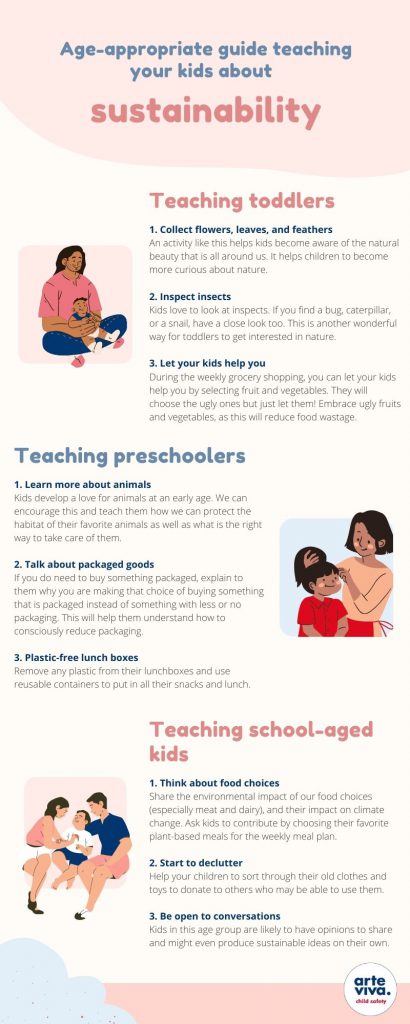
Overall, if you want to teach kids about sustainability, focus on the actions we can take and the impact we can have on the planet. It does not matter how few steps you and your child are taking but the effort of wanting to change something is what really counts to help the environment. Here you can find our guidelines to download or print.
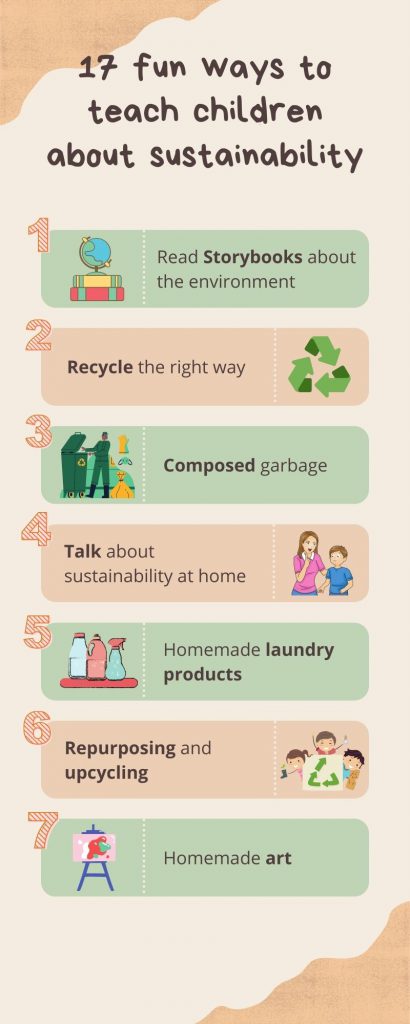
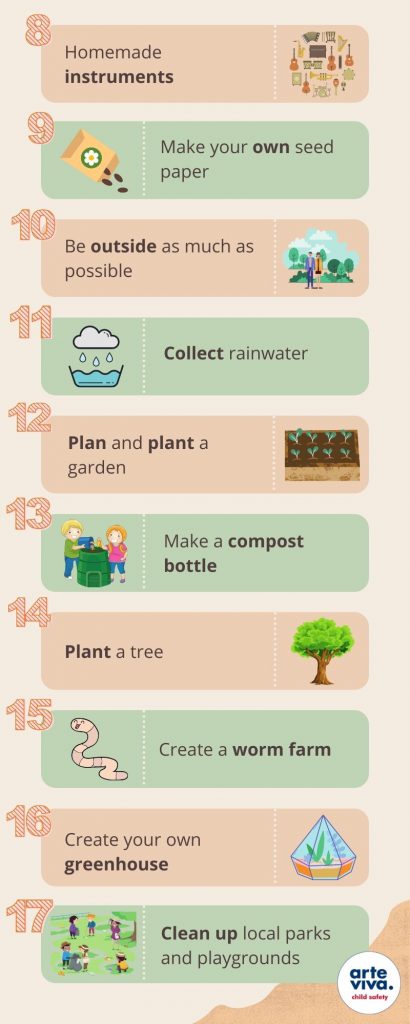
Questions?
Would you like to know how we as a company contribute to the environment? Then have a look at our sustainable report. Contact us for more information or request a quote without obligation.

